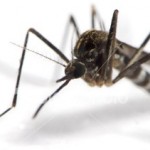 World-first screening by scientists at the Queensland Institute of Medical Research has identified new potential treatments for blocking malaria transmission.
World-first screening by scientists at the Queensland Institute of Medical Research has identified new potential treatments for blocking malaria transmission.
The QIMR team, in conjunction with Griffith University, designed a technique to screen a large library of existing compounds, to see whether any had the potential to block malaria transmission from humans to the mosquito, breaking the cycle of the devastating disease, which kills up to a million people each year.
Initial screening of 10,000 substances identified six strong “hits”, including some drugs already on the market.
Head of QIMR’s Malaria Biology Laboratory, Associate Professor Don Gardiner, said it was an exciting result.
“It was incredibly satisfying. It’s a significant step forward for work into more transmission blocking anti-malarial drugs,” Associate Professor Gardiner said.
“The problem with the only existing drug for blocking transmission in malaria – Primaquine – is that it’s toxic in 25 per cent of affected populations.
“We’re hopeful that of the six compounds we’ve identified so far, toxicity won’t be an issue, and some may be even more effective at blocking transmission than the existing drug. In addition these compounds could conceivably prevent relapses of the disease.“
The research team will now investigate the compounds further, to determine whether they’re suitable to become drugs.
The research was carried out by QIMR’s Don Gardiner, Associate Professor Katharine Trenholme and Professor James McCarthy, and Associate Professor Chris Brown from Griffith University. The screening was conducted in conjunction with the Scripps Research Institute in Florida.
Malaria is responsible for up to one million deaths in Pacific, Asian and African nations every year. Australia has up to 600 cases each year.

















